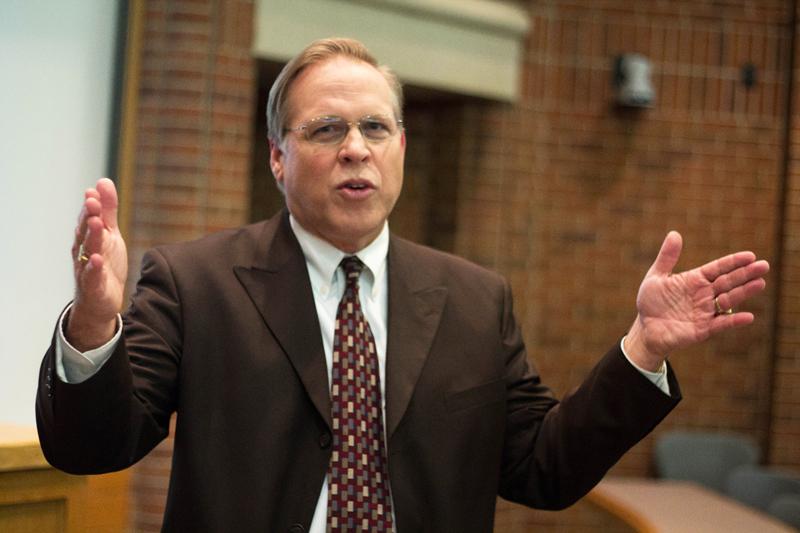Family, friends and supporters came together inside MU’s law library to listen to trial attorney J.R. Hobbs speak on federal sentencing, including the case of Columbia resident Dr. Shakir Hamoodi.
Hamoodi, an Iraqi-born U.S. citizen, was sentenced to a three-year sentence in federal prison for illegally sending more than $200,000 to family, friends and charitable organizations in his homeland between 1991 and 2003. U.S. sanctions outlawed monetary transfers to Iraq for the 12-year span, according to [a previous Maneater article](https://www.themaneater.com/stories/2012/8/28/community-seeks-commute-hamoodis-sentence/).
The government suggested 48 months in prison for Hamoodi. Despite Hobbs’ attempt to persuade the court to rule a probation sentence, the court handed out 36 months.
Hamoodi remains in Leavenworth Satellite Prison Camp, a low-security prison. He’s been there for five months and counting.
“None of us want to be defined by our lowest moment,” Hobbs said. “We don’t want to be defined, we don’t want to judge people that way. What’s important is to respect the process.”
Owais Abdul-Kafi, one of Hamoodi’s five children, attended the meeting.
“It’s been very difficult, to say the least,” Abdul-Kafi said. “He’s in a place he doesn’t belong, away from his family where he belongs.”
Abdul-Kafi continues to rally support for his father, hoping for pardon or a commuted sentence.
After the sentencing, the Shakir Hamoodi [support group](http://www.helphamoodi.org/writetohamoodi.html) was formed, coordinating efforts to free him. A petition on Change.org with a goal of 12,797 signatures continues to collect them, with 7,203 as of Thursday night.
Members of Hammodi’s family and support group say during his time in prison, Hammodi has joined the kitchen staff and started teaching Arabic to some peers.
Dr. Kit Salter, former MU Chair of Geography and a Hamoodi supporter, says both family and friends make the 160-mile, 9-hour round trip to from Columbia to Leavenworth, Kansas, to visit Hamoodi. Three-hour visitation is allowed.
“His spirits are focused,” Salter said.
From 3-7 a.m., Hamoodi writes because it is quiet in the wing of 70 to 80 prisoners. Salter said he writes his life story and his book of life observations.
“He had two books in his writing,” he said. “One book was his life story. We said you’ve got to write about what you’ve done, you’re so impressive in the things you’ve accomplished. And the other thing, a book of observations. What do you see? What’s it like here? Give us a sense of what, even in a so-called camp, what’s it like?”
With his legal process finished, Hamoodi’s only hope of release is to have his sentence commuted or for President Barack Obama to pardon his sentence.
“We’re hopeful that justice will prevail,” Abdul-Kafi said.








